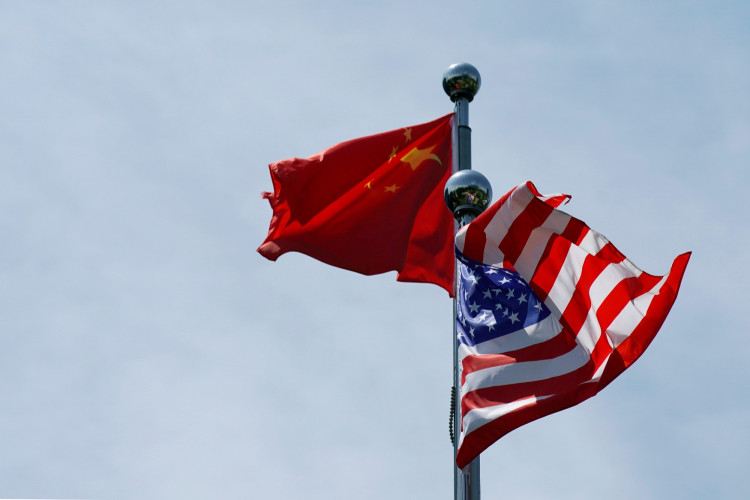The U.S. House of Representatives has passed a bipartisan bill that could lead to the closure of Hong Kong's trade offices in the United States, escalating tensions between Washington and Beijing. The legislation, known as the Hong Kong Economic and Trade Office Certification (HKETO) Act, was approved with overwhelming support on Tuesday, sparking strong condemnation from both the Hong Kong government and Beijing.
The bill, which must still clear the Senate and be signed by President Joe Biden, would require the U.S. Secretary of State to annually review the "privileges, exemptions, and immunities" granted to Hong Kong's Economic and Trade Offices (HKETOs) in the United States. If the Secretary of State determines that these offices no longer operate with a "high degree of autonomy" from the Chinese government or pose national security concerns, their operations would be terminated within 180 days.
Beijing swiftly denounced the legislation, accusing the U.S. of politicizing economic cooperation and attempting to stifle Hong Kong's development. "China urges the U.S. to stop advancing that act to prevent further damage to the stability and growth of China-U.S. relations. Otherwise, China will take strong and resolute countermeasures," a Chinese government spokesperson warned.
The Hong Kong government echoed Beijing's sentiments, issuing a statement that condemned the U.S. House for what it described as a "fact-twisting" attack on Hong Kong's legal framework and human rights situation. "The U.S. House of Representatives' fact-twisting attack on Hong Kong is politically driven, violates international law, and grossly interferes in the affairs of Hong Kong," the statement read.
The controversy surrounding the HKETO Act reflects the deteriorating diplomatic relations between Washington and Hong Kong, particularly since the imposition of a Beijing-backed national security law in Hong Kong in 2020. This law, which followed months of pro-democracy protests in the city, has been criticized by Western governments as a tool to undermine the "one country, two systems" principle that was supposed to preserve Hong Kong's autonomy after its handover from Britain in 1997.
Supporters of the HKETO Act argue that the Hong Kong trade offices have increasingly functioned as agents of the Chinese government, rather than as representatives of a semi-autonomous region. Republican Representative Chris Smith, chair of the Congressional-Executive Commission on China and a sponsor of the bill, stated during a hearing on Tuesday that the legislation is "a necessary next step in tangibly demonstrating our solidarity with the persecuted citizens of Hong Kong."
Smith highlighted the plight of prominent Hong Kong figures such as jailed media tycoon Jimmy Lai, activist Joshua Wong, and human rights lawyer Tonyee Chow as emblematic of the ongoing repression in the city. "The United States should not be granting diplomatic privileges and immunities to a network of communist spies and propagandists," Smith declared.
The HKETO Act comes as part of a broader legislative push by the Republican-led House to address perceived threats from the Chinese Communist Party. This "China Week" initiative includes a series of bills aimed at countering China's influence in various sectors, from military to economic to technological.
In response to the U.S. actions, Beijing has vowed to retaliate, though it has not yet specified what measures it might take. The stakes are high, as the potential closure of Hong Kong's U.S.-based trade offices could further strain relations between the two global powers.
The situation is exacerbated by the recent implementation of Article 23, a new security law in Hong Kong that U.S. officials and analysts warn could further erode the city's autonomy and threaten U.S. businesses operating there. The U.S. State Department recently advised that "the risks businesses face in the [People's Republic of China] are now increasingly present in Hong Kong."






